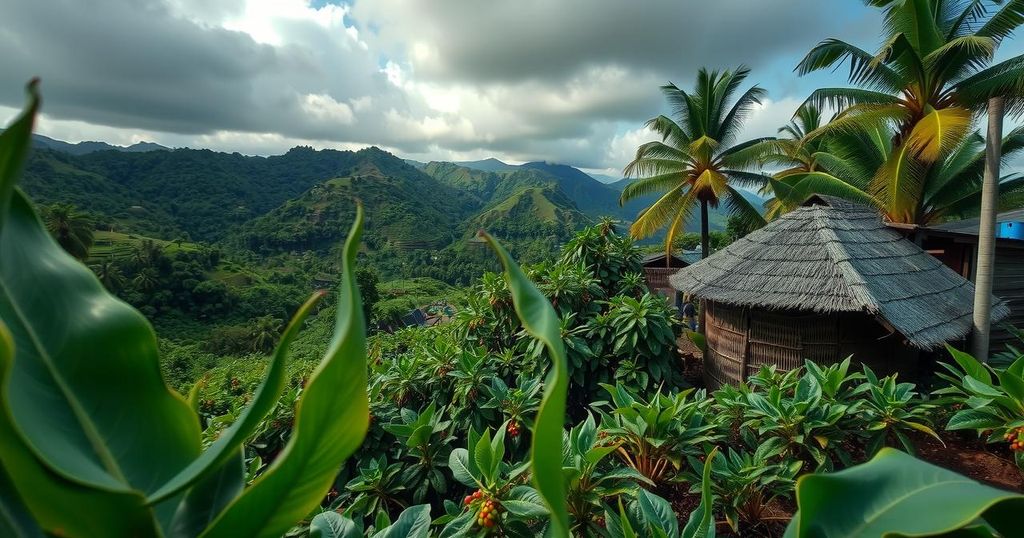Equatorial Guinea gained its independence from Spain in 1968, leading to the establishment of a dictatorship under Francisco Macías Nguema. Teodoro Obiang overthrew him in 1979 but continued autocratic governance. Constitutional changes have failed to significantly alter the political landscape, with ongoing allegations of electoral fraud and human rights abuses. The nation has recently hosted the Africa Cup of Nations and repealed the death penalty but remains under scrutiny for its oppressive regime.
Equatorial Guinea gained independence from Spain on October 12, 1968, following a period of growing nationalist sentiment that began in late 1967. The Spanish government, with endorsement from the Organization of African Unity, suspended its autonomous political control and organized a national referendum which overwhelmingly ratified a new constitution. The inaugural presidential election placed Francisco Macías Nguema in power, who swiftly established a dictatorial regime, declaring himself president for life and suppressing dissent through severe human rights abuses, leading to widespread exodus by citizens. In 1979, Nguema was overthrown by his nephew, Teodoro Obiang Nguema Mbasogo, who initiated a less authoritarian governance structure, albeit still marked by allegations of electoral fraud and human rights violations. A constitutional change in 1991 enabled a multiparty system, but genuine political opposition remained stifled. Notably, allegations surfaced regarding a small elite’s misappropriation of the nation’s burgeoning oil wealth. Subsequent amendments to the constitution in 2011 appeared to consolidate Obiang’s grip on power further, allowing for the appointment of a vice president and extending presidential authority. International observers criticized the electoral processes, citing rampant irregularities and intimidation during the elections of 2016 and 2022. Equatorial Guinea experienced some international recognition when it hosted the Africa Cup of Nations in 2015, quickly organizing the event amidst prior crises. In recent years, however, the regime has been scrutinized for its oppressive practices, even as it has made gestures, such as abolishing the death penalty in 2022, that have yet to yield substantive reform or political liberalization.
The background to Equatorial Guinea’s independence and subsequent political evolution is critical in understanding its present-day governance. The nation was under Spanish colonial rule until its independence in 1968, with the transition facilitated by nationalist movements. Francisco Macías Nguema’s dictatorship characterized the early years post-independence, marked by oppression and human rights violations. Teodoro Obiang’s coup heralded a new era, yet the country struggled with autocratic rule and economic mismanagement despite natural wealth from oil reserves.
In summary, Equatorial Guinea’s journey from independence to the current political climate highlights the challenges of governance in post-colonial African states. The manipulative tactics employed by rulers to maintain power and the systemic political repression have not deviated over decades, even in the face of natural resource wealth. The international community continues to monitor developments with hope for genuine reforms that could lead to improved governance and respect for human rights.
Original Source: www.britannica.com






